
Emilie Snell-Rood
(Re)Conceptualizing Function and Goal-Directedness
‘Function’ in biology and bio-inspired design
Subaward Principal Investigator
University of Minnesota
Emilie Snell-Rood is an Associate Professor and Associate Head of Ecology, Evolution and Behavior in the College of Biological Sciences at the University of Minnesota. Emilie did her graduate work at the University of Arizona and a postdoc at Indiana University before starting at the University of Minnesota in 2011. Research in her lab asks why organisms vary in developmental and behavioral plasticity, and what this means for predicting responses to novel environments. She primarily uses butterflies as a study system, but also has experience working with beetles, bees, birds, and mammals. Emilie teaches Animal Behavior and a course on bio-inspired approaches to problem-solving. Her interests in bio-inspired design have led to a series of interdisciplinary collaborations developing educational modules for engineers and designers interested in looking to biodiversity for ideas in their own applications.
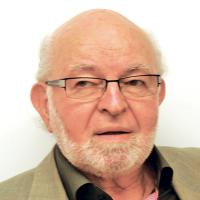
Carlos Sonnenschein
Agency and Directionality in Development
Intrinsic purposiveness and the shaping of development
Tufts University
CARLOS SONNENSCHEIN is a Professor at Tufts University School of Medicine, and an International Fellow at the Centre Cavaillès, Ecole Normale Supérieure, Paris, France. He was a Fellow at the Institute of Advanced Studies-at-Nantes, France. For over five decades, Dr. Sonnenschein’s research has centered on a) the control of cell proliferation by estrogens and androgens, b) the impact of endocrine disruptors on organogenesis and the reproductive function and c) carcinogenesis during early development and adult life and, specifically, on the role of stroma/epithelial interactions on rat and breast carcinogenesis. In 1999, Drs Sonnenschein and Dr. Ana M Soto co-authored a book entitled THE SOCIETY OF CELLS (Bios-Springer-Verlag) in which they critically evaluated the fields of control of cell proliferation and carcinogenesis. They concluded that a) the default state of all cells is proliferation, and that b) sporadic cancers (over 95% of clinical cases) are anchored at the tissue level of biological organization. These are the core premises of their theory of carcinogenesis and metastases, i.e., the tissue organization field theory (TOFT).
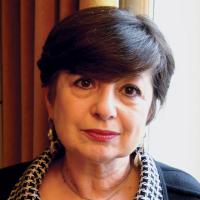
Ana Soto
Agency and Directionality in Development
Intrinsic purposiveness and the shaping of development
Subaward Principal Investigator
Tufts University
ANA M. SOTO, M.D. (Professor, Tufts University School of Medicine, Boston, Foreign Correspondent Member Centre Cavaillès, Ecole Normale Supérieure, Paris and Fellow, Collegium Ramazzini, Carpi) is a theoretical and experimental biologist. Her research interests include the control of cell proliferation, normal and neoplastic development, and biological autonomy and organization. In partnership with Professor Carlos Sonnenschein, they posited that the default state of cells in all organisms is proliferation and proposed the Tissue Organization Field Theory of Carcinogenesis, in which cancer is viewed as development gone awry. As the Blaise Pascal Chair at the ENS (2013-5) she coordinated a multidisciplinary working group devoted to the elaboration of a theory of organisms. She is a recipient of several honors including the 2012 Gabbay Biotechnology & Medicine Award, Brandeis University and the Grand Vermeil Medal, the highest distinction from the City of Paris for her pioneering role in the discovery of endocrine disruptors.
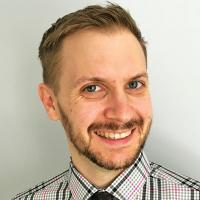
Beckett Sterner
Directionality in Genomics and Macroevolution
New tests of directionality in fossil lineages
Subaward Principal Investigator
Arizona State University
Beckett Sterner is a philosopher of biology with a background in statistics and computational modeling. His work on evolutionary tempo and mode, biological individuality, and information aims to uncover novel ways of approaching scientific problems and challenges for objectivity given different background assumptions, e.g. about whether models are adequate to represent the phenomena. More broadly, Sterner studies the social epistemology of pluralism: what knowledge do we need to get things done together while differing in fundamental ways? He investigates this question in the context of the life sciences, where globally coordinating data-intensive research has taken on central importance for addressing societal challenges such as biodiversity loss and climate change.
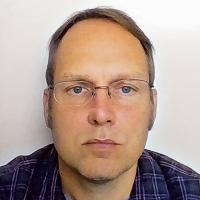
Peter Takacs
Evolutionary Origins and Transitions of Agency
Transitions in individuality: from ecology to teleonomy
University of Sydney
Peter Takacs is currently an ARC (Australian Research Council) Postdoctoral Research Fellow in the Department of Philosophy and Charles Perkins Centre at The University of Sydney. His current research spans the philosophy of biology and evolutionary biomedicine, with special emphasis on the fundamental conceptual and empirical challenges that arise when determining the ontology of individuals, ascribing biological fitness, and identifying biological (dys)functions. He also has longstanding interests in explanations of major evolutionary transitions and whether the life sciences in fact require a “New Synthesis.”
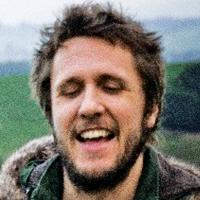
Graham Thomas
Evolutionary Origins and Transitions of Agency
Transitions in individuality: from ecology to teleonomy
Macquarie University
Graham is a PhD candidate in Philosophy at Macquarie University, with a background in the philosophy of cognitive science and evolution. His PhD thesis is on the origins and cultural evolution of storytelling, in particular the application of an Extended Evolutionary Synthesis to understanding how and why storytelling has become a ubiquitous behaviour in humans across cultures. His interests lie broadly in conceptual issues around evolution, cognition, agency, and the self.

Tobias Uller
Agential Behavior and Plasticity in Evolution
Evolution and organismal goal-directedness
Subaward Principal Investigator
Lund University
Tobias Uller received his PhD from University of Gothenburg, Sweden, in 2004. Following a postdoctoral fellowship at the University of Wollongong, Australia, he returned to Europe in 2007 to take up a Departmental Lectureship at the University of Oxford. In 2015, he moved to Lund University, Sweden, where he now is Professor of Evolutionary Biology. Uller has held several fellowships, including a Fulbright Fellowship at the University of Arizona, a Royal Society University Research Fellowship at Oxford, and a Wallenberg Academy Fellowship at Lund University. Uller’s research is characterized by an integrative approach – from molecular and developmental biology to ecology – guided by mathematical modelling and conceptual analysis. His projects span a range of topics, but most are designed to reveal how the development, physiology and behaviour of organisms influence their evolution.
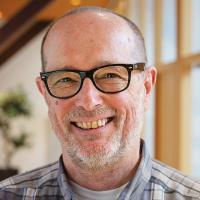
Günter Wagner is the Alison Richard Professor of Ecology and Evolutionary Biology at Yale University. He is a chemical engineer by training and studied zoology and mathematics at the University of Vienna where he earned a Ph. D. in zoology. From 1985 till 1991 he was at the Department of Zoology at the University of Vienna, Austria and in 1991 joined Yale’s Department of Biology. In 1997 he became the first chair of Yale’s Department of Ecology and Evolutionary Biology. Since 2010 he is a member of the Yale Systems Biology Institute. His research interests include the evolution of gene regulation, the evolution of pregnancy, and the evolutionary biology of cancer and female sexuality. GPW is a Mac Arthur Fellow, member of the US National Academy of Sciences, the American Academy of Arts and Sciences, the Connecticut Academy of Science and Engineering and a corresponding foreign member of the Austrian Academy of Sciences.
